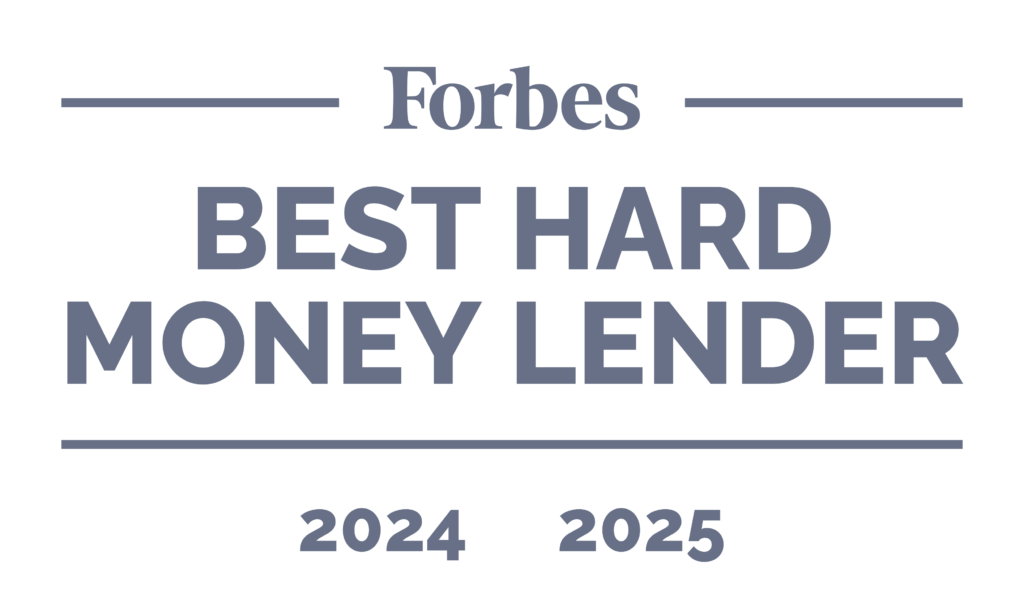Here’s a trick question: What’s the hardest real estate deal to close? The simple answer: your very first one as an investor. If you think about it, it makes sense – inexperienced real estate investors don’t yet have the requisite experience and knowledge to avoid the most common pitfalls and mistakes that tend to come back and haunt new property owners.
On the bright side, the multifamily residential market is remarkably strong. Vacancy rates have plummeted as of late due in large part to the exponential growth of the baby boomer generation. Many of these individuals are opting to sell their homes and rent instead, choosing to pass on the work and costs associated with maintaining their single-family homes. Millennials are also contributing to the surge in multifamily demand, as the generation prioritizes flexibility and mobility overstaying put in one geographic area – making apartment rentals the perfect option for their lifestyle. Another positive factor in the multifamily sector is that rents are up, mainly because intuitive property managers and landlords are taking advantage of the increased tenant demand for cutting-edge technology that can justify the additional payments.
What is Multi-family Finance?

Multi-family finance refers to the process of obtaining financing for properties that have multiple residential units, such as apartment complexes or condominiums. This type of lending is specifically tailored for real estate investors and developers who are looking to purchase, refinance, or renovate multi-family properties.
There are several different types of multi-family financing options available, including traditional bank loans, government-backed loans and private lender loans. Each type of financing has its own set of terms, requirements, and benefits, so it’s essential for investors to carefully consider their options before moving forward with a multi-family loan. Let’s take a closer look at some options multi-family investors have when it comes to financing.
What are My Options for Multi-family Financing?

When it comes to multi-family property, there is a wide range of financing options available to investors. These options include traditional bank loans and other commercial lenders, government-backed loans, and private lenders.
One common option for multi-family financing is a conventional loan from a traditional financial institution. Banks offer competitive interest rates and terms for investors looking to purchase or refinance a multi-family property. To qualify for multi-family financing, borrowers must typically meet certain qualifications, including having a strong credit history, a sufficient amount of liquid assets, and a debt-to-income ratio that is within the lender’s guidelines.
Government-backed loans, such as those offered by the Federal Housing Administration (FHA) or Fannie Mae, are another popular financing type. These loans typically have more flexible eligibility requirements and lower down payment options than traditional bank loans. However, they may come with additional fees and restrictions.
Private lenders are also an option for investors looking to finance a multi-family property. Private lenders offer more flexibility in terms of eligibility requirements and loan terms, making them a popular choice for investors with unique financing needs. However, private loans may come with higher interest rates and fees compared to traditional bank loans or government-backed real estate loans.
With lower barriers to entry than other property types, now is the perfect time to invest in the multi-family property sector, but there are some potential missteps first-time investors can get caught up in that can have negative financial impacts. With that being said, simply waiting around until you feel like you know every single detail of the investment industry isn’t an option. So here are five mistakes to avoid making as a multi-family investor.
Going Solo

Deciding to invest in multi-family residences is a big step, but the long-term return on investment makes it one worth taking. Just don’t try to do it all on your own the first time. Rookie investors often think that if they do all the work, they’ll get a bigger payoff at the end of the day. Unfortunately, that’s not the case. Investing in multi-family properties requires some degree of teamwork. As a first-time investor, you probably don’t have an extensive knowledge or sufficient time to complete all the steps a transaction entails on your own. Evaluating, negotiating and eventually managing the property all require specialized skillsets that come with experience. Another concern is having enough funds or borrowing power to acquire a property by yourself.
A straightforward way to avoid this common pitfall is to seek out a trustworthy multi-family lender with a track record of successful investments. These individuals know how to locate good properties and vet the numbers to make sure the deal makes sense and talk banks into loaning you the money you need. They can also help educate you throughout the process. They earn fees and take a cut of the equity, but this expense is well worth it to tap into their experience.
Undisciplined Budget

New investors often can’t control their emotions when they get presented with what appears to be a great deal. They subsequently cut corners during due diligence in a rush to get started on what they believe will be a lucrative venture. Don’t fall into this trap. Take the time to thoroughly analyze the deal, crunch the numbers and make an informed decision. A cautious approach is often better than being overly aggressive, and you may find you have to turn away several promising deals because they just don’t make economic or logistical sense for your real estate portfolio. Partnering with an experienced hard money lender who can help guide you throughout this process is also a great option.
Appreciation Dependency
Hypothesizing how much and when a property’s value will increase is a risky game that could land you in financial trouble. Experienced investors know that the most reliable approach is to purchase under-valued property, hold on to it for a while, and sell it years down the road after the market value has appreciated. The tricky part is that no one can accurately predict the rate a given property will appreciate. When the market is active and values are rising, you may be able to get away with attempting to buy and sell immediately.
We’re not saying you shouldn’t take appreciation into account when deciding on an investment, but you should adopt a conservative approach and anticipate selling the property in a down market that could be a long way off so budget accordingly with the comfort of knowing that one day in the future the market will fluctuate in your favor and you’ll enjoy a great payday.
Accurate Expenditure Projections

While hard money lenders can help you determine the costs and expenses related to your multi-family investment, you should still take the time to personally verify if these projections are accurate. The mistake a lot of new investors make is that they overlook the amount of money they will have to pay for rental expenses from the very first day they take ownership.
When the market is slow, tenants may start demanding upgraded units and amenities. That means your budget may increase to keep up with market standards and attract a steady flow of new tenants. To avoid this financial trap, be sure to analyze the property and compare it to similar properties that are being offered in your market. Then determine what upgrades, if any, are necessary to make your property competitive on the market.
Selecting the Wrong Market
The majority of first-time investors believe that investing in a local property is a safer play because they have more first-hand knowledge of the area. This is a big mistake. Just remember the classic real estate saying: “Location, location, location!” You could be losing out on tons of profit because the ideal investment location could be hundreds or thousands of miles away. Don’t let the distance scare you. As long as you analyze the cap rate, area job growth, employment stats, and other variables, you have all the information you need to know to make an investment decision.
The financial experts at Express Capital Financing can tailor a multi-family loan to suit your unique set of needs in a fraction of the time that it takes to obtain a conventional financing solution. Contact us today to learn more about how we can assist you in achieving your real estate investing goals.
FAQ
When applying for multifamily financing, there are several key documents that you will need to provide in order to qualify for a loan. These documents are essential for lenders to assess your financial stability and the viability of the property you are looking to purchase or refinance. Here are some of the documents typically required for multifamily lending:
- Personal financial statement: This document provides a snapshot of your personal assets , liabilities, and net worth. Lenders use this information to evaluate your financial health and ability to repay the loan.
- Income statements: These documents show your income from all sources, including rental income from the multifamily property. Lenders use this information to assess your ability to generate enough income to cover the loan payments.
- Tax returns: Lenders typically require several years of personal and business tax returns to verify your income and assess your financial stability.
- Property information: You will need to provide details about the multifamily property you are looking to finance, including its location, size, number of units, rental income, expenses, and any renovations or upgrades you plan to make.
- Credit report: Lenders will pull your credit report to evaluate your creditworthiness and determine the interest rate and terms of the loan.
- Business plan: A detailed business plan outlining your investment strategy, market analysis, property management plan, and financial projections can help lenders understand your goals and evaluate the potential success of your investment.
- Appraisal: Lenders will require a professional appraisal of the multifamily property to determine its value and assess its potential for generating income.
Refinancing a multifamily real estate project can be a great way to lower your interest rate, reduce your monthly payments, or cash out equity for other investments. Here are some steps to consider when refinancing your multifamily property:
- Evaluate your financial situation: Before applying for a refinance, take a look at your current loan terms, interest rate, and overall financial goals. Determine if refinancing makes sense for you based on your current financial situation.
- Shop around for lenders: Compare rates and terms from multiple lenders to find the best deal for your refinancing needs. Consider working with a multi family lender like Express Capital Financing.
- Gather necessary documentation: Be prepared to provide documentation such as tax returns, income statements, and property appraisal reports when applying for a refinance.
- Apply for the refinance: Submit your application to the chosen lender and wait for approval. Be prepared to pay closing costs and any associated fees.
- Close on the new loan: Once approved, go through the closing process to finalize the new loan terms and begin making payments according to the new agreement.
The cost of obtaining a multifamily loan can vary depending on several factors, including the size and complexity of the loan, as well as the lender's fees.
Typically, borrowers can expect to pay various loan fees throughout the process. These may include application fees, loan origination fees, underwriting fees, appraisal fees, legal fees, and closing costs. Some lenders may also require borrowers to pay for property inspections, title searches, and other third-party services.
In addition to these fees, borrowers should also consider the interest rate on the loan and any points or prepayment penalties that may apply. It's important to carefully review all costs associated with the loan before proceeding with the application process.
To get a better understanding of the specific costs involved in obtaining a multifamily loan, it's recommended to contact a lender like Express Capital Financing for a personalized quote and consultation. We can provide you with detailed information on the fees associated with our multifamily lending services, as well as help you navigate the loan process from start to finish.
The maximum loan-to-value (LTV) ratio for multifamily loans can vary depending on the lender and the specific loan program. In general, most lenders typically offer LTV ratios between 65% to 80% for multifamily loans.
However, some lenders may offer higher LTV ratios up to 85% or even 90% for certain borrowers or properties. These higher LTV ratios are usually reserved for well-qualified borrowers with strong credit score and financial profiles, as well as properties in prime locations with stable cash flow.






